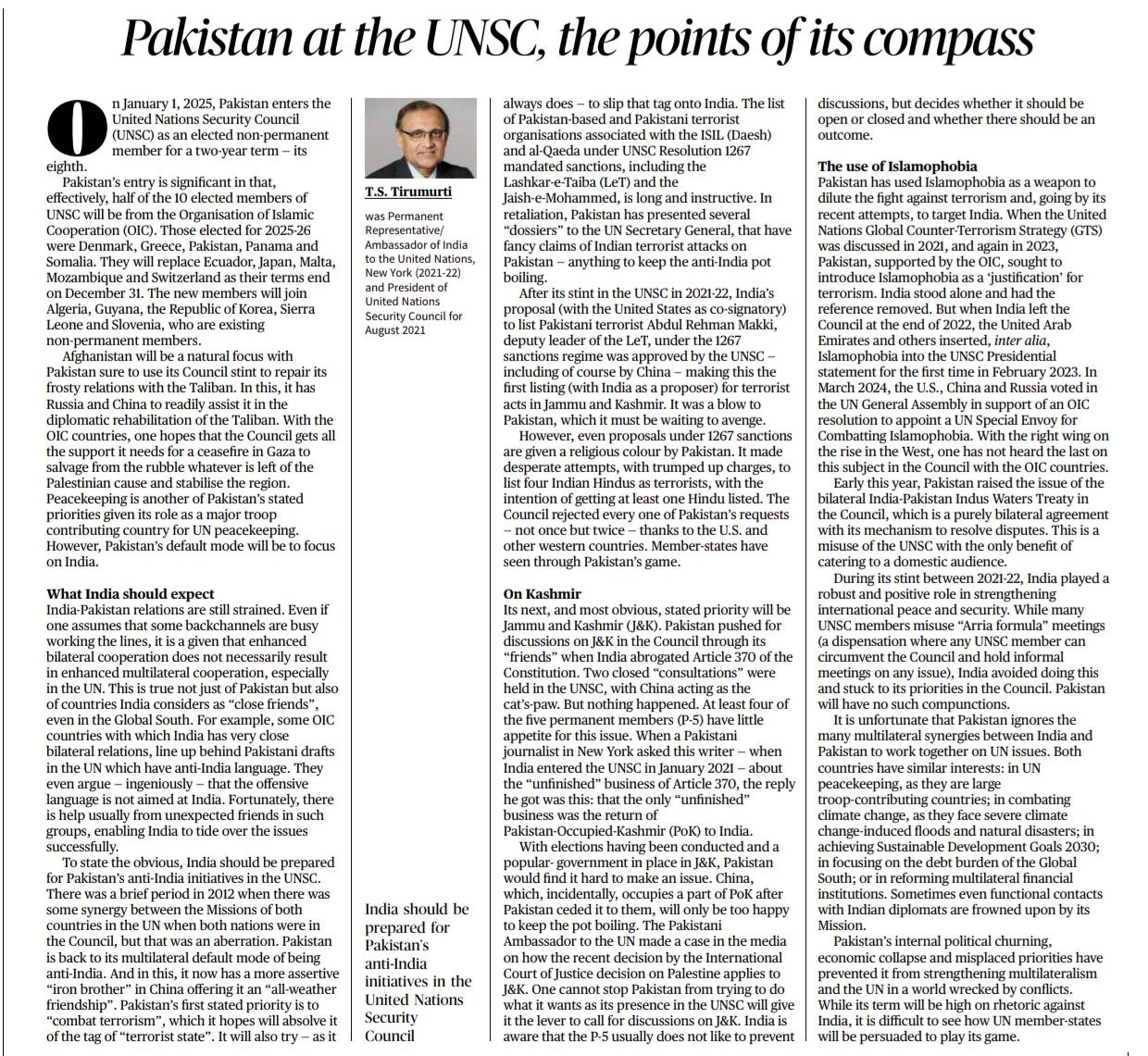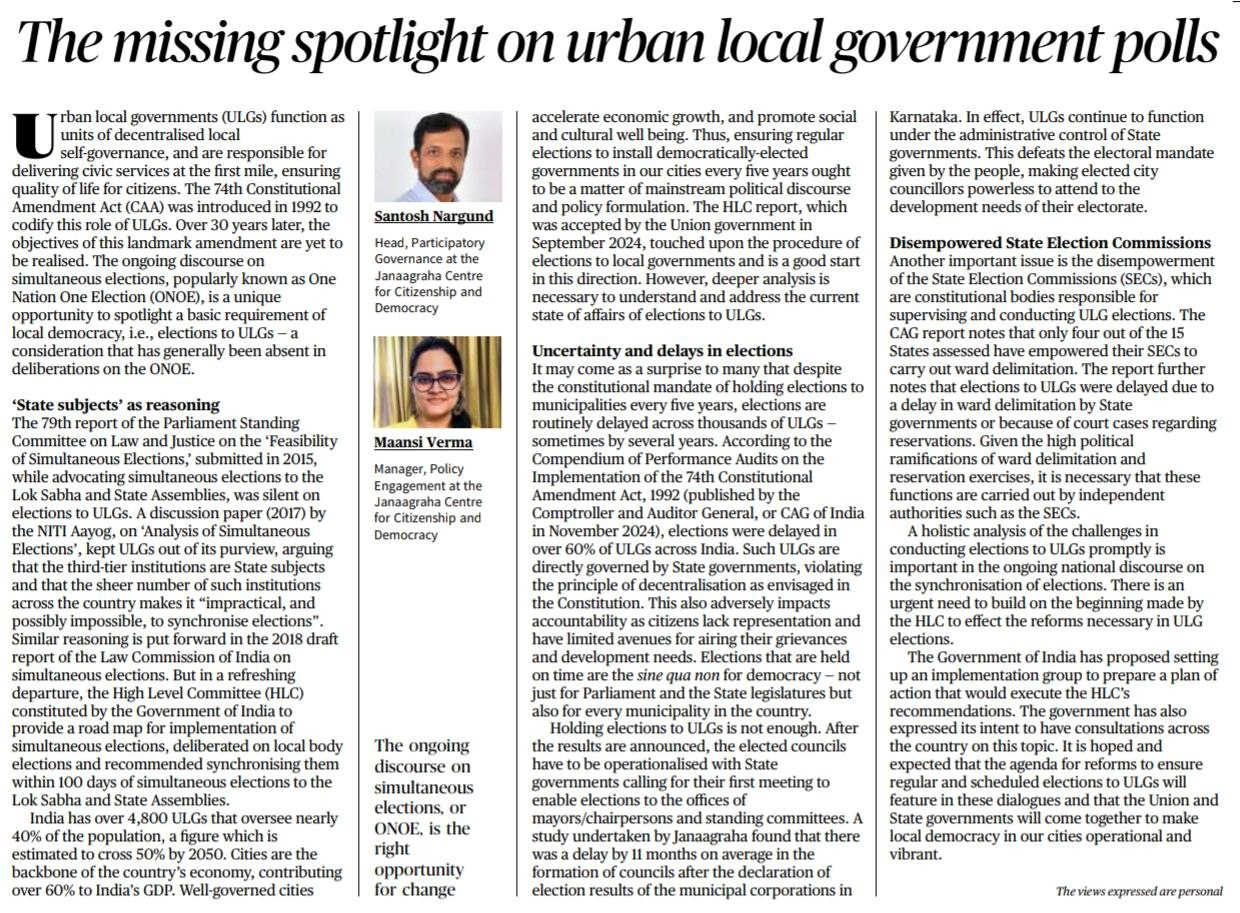1. Pakistan’s Role in the UNSC: Challenges and Implications for India
Introduction
Pakistan’s election to the United Nations Security Council (UNSC) as a non-permanent member for 2025-26 highlights its strategic ambitions on the global stage. As half of the elected members will belong to the Organisation of Islamic Cooperation (OIC), this tenure offers Pakistan opportunities to influence international and regional issues, particularly in ways that might affect India.
Key Priorities for Pakistan at the UNSC
- Focus on Afghanistan:
- Likely to prioritize repairing relations with the Taliban, leveraging Russia and China’s support.
- Aim to stabilize the region while maintaining influence in Kabul.
- Palestinian Cause:
- Continued vocal support for Palestinian rights to rally Islamic and OIC countries’ backing.
- Counter-India Narrative:
- Historically, Pakistan uses platforms like the UNSC to internationalize issues such as Kashmir, presenting dossiers on alleged Indian activities.
- Efforts to exploit forums to introduce Islamophobia discourse to target India.
- Islamophobia Diplomacy:
- Advocacy for resolutions tied to Islamophobia and its perceived use against Pakistan.
- Past attempts were seen during the UN General Assembly and related bodies.
- Water Issues:
- Raising concerns about India-Pakistan water-sharing agreements like the Indus Waters Treaty in global forums to gather international attention.
India’s Strategic Response
- Prepare for Countermeasures:
- Anticipate Pakistan leveraging close ties with OIC and other countries to push anti-India narratives.
- Strengthen diplomatic efforts to neutralize such moves, particularly on Jammu & Kashmir (J&K).
- Focus on Multilateral Cooperation:
- Emphasize India’s role as a responsible global power focusing on climate change, counter-terrorism, and sustainable development goals.
- Work towards isolating Pakistan diplomatically in multilateral fora by rallying international consensus on terrorism emanating from its territory.
- Defend India’s Sovereignty:
- Continue highlighting Pakistan’s internal political instability and double standards on terrorism to undermine its credibility.
- Robustly counter narratives on Kashmir and Islamophobia using facts and legal frameworks.
Conclusion
Pakistan’s UNSC tenure poses diplomatic challenges for India, given Islamabad’s historical tendencies to internationalize regional disputes. While it provides an opportunity for Pakistan to reset its global image, its default approach is expected to focus on anti-India rhetoric.
India must leverage its growing global influence and partnerships to counter these challenges effectively while continuing its leadership in multilateral platforms on global issues.
Mains Practice Question |
Q. Discuss the implications of Pakistan’s election to the United Nations Security Council for India’s diplomatic and strategic interests. How should India respond to safeguard its national concerns? |
2. Revitalizing Urban Local Democracy: Ensuring Timely Elections for ULGs
Introduction
Urban Local Governments (ULGs) form the cornerstone of decentralized governance in India, tasked with delivering essential civic services and fostering quality urban life. Despite the constitutional mandate provided by the 74th Constitutional Amendment Act (CAA), 1992, the functioning of ULGs remains hindered by delayed elections and disempowered institutions. This article underscores the urgent need for reforms, especially within the context of the ongoing debate on One Nation One Election (ONOE).
Significance of ULGs
- ULGs govern over 4,800 municipalities, covering nearly 40% of the population (projected to exceed 50% by 2050).
- Urban areas contribute 60% to India’s GDP, making effective governance crucial for sustained economic growth and social well-being.
- Regular and timely elections ensure accountability, representation, and democratic vibrancy at the grassroots level.
Challenges Faced by ULG Elections
- Frequent Delays in Elections:
- Elections are delayed in over 60% of ULGs, leaving them under state government control, violating constitutional principles of decentralization.
- Example: Karnataka witnessed an average 11-month delay in operationalizing councils after municipal election results.
- Disempowered State Election Commissions (SECs):
- SECs, the constitutional bodies for ULG elections, lack authority in key areas like ward delimitation.
- Only 4 out of 15 states assessed by the CAG have empowered their SECs for ward delimitation, leading to delays caused by state governments or legal disputes.
- State Interference in Governance:
- Delays in operationalizing elected councils render ULGs dependent on state administrations, undermining the electoral mandate and local representation.
- Lack of Focus in ONOE Discourse:
- Simultaneous elections discussions primarily focus on national and state elections, sidelining the importance of ULG elections despite their critical role in governance.
Reforms Proposed
- Empowering SECs:
- Strengthen SECs to independently handle ward delimitation, reservation exercises, and election schedules.
- Mandate state compliance with SEC guidelines to minimize political interference.
- Synchronizing ULG Elections:
- High-Level Committee (HLC) suggests aligning ULG elections within 100 days of national and state elections for better coordination.
- Requires a robust implementation plan with consultations between Union and state governments.
- Strict Accountability for Delays:
- Enforce penalties or administrative measures for states failing to conduct timely elections or operationalize councils.
- Public Awareness and Advocacy:
- Mobilize civil society and urban residents to demand regular elections and greater transparency in ULG governance.
Conclusion
Ensuring timely and fair elections to ULGs is essential for strengthening urban democracy, promoting accountability, and meeting the development needs of growing cities. The ongoing discourse on ONOE presents a timely opportunity to integrate ULG reforms into the broader agenda. Collaboration between the Union and state governments, along with empowered SECs, is pivotal to creating a vibrant and effective third tier of governance.
Mains Practice Question |
Q. Analyze the challenges faced in conducting timely elections for Urban Local Governments (ULGs) in India. Suggest measures to empower State Election Commissions and ensure vibrant local democracy. |



